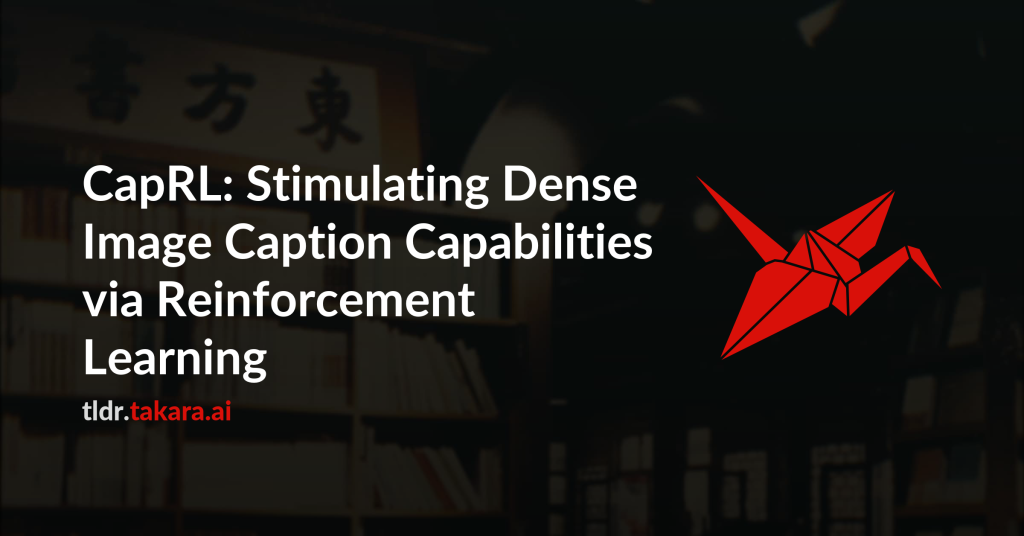Image captioning is a fundamental task that bridges the visual and linguistic
domains, playing a critical role in pre-training Large Vision-Language Models
(LVLMs). Current state-of-the-art captioning models are typically trained with
Supervised Fine-Tuning (SFT), a paradigm that relies on expensive, non-scalable
data annotated by humans or proprietary models. This approach often leads to
models that memorize specific ground-truth answers, limiting their generality
and ability to generate diverse, creative descriptions. To overcome the
limitation of SFT, we propose applying the Reinforcement Learning with
Verifiable Rewards (RLVR) paradigm to the open-ended task of image captioning.
A primary challenge, however, is designing an objective reward function for the
inherently subjective nature of what constitutes a “good” caption. We introduce
Captioning Reinforcement Learning (CapRL), a novel training framework that
redefines caption quality through its utility: a high-quality caption should
enable a non-visual language model to accurately answer questions about the
corresponding image. CapRL employs a decoupled two-stage pipeline where an LVLM
generates a caption, and the objective reward is derived from the accuracy of a
separate, vision-free LLM answering Multiple-Choice Questions based solely on
that caption. As the first study to apply RLVR to the subjective image
captioning task, we demonstrate that CapRL significantly enhances multiple
settings. Pretraining on the CapRL-5M caption dataset annotated by CapRL-3B
results in substantial gains across 12 benchmarks. Moreover, within the Prism
Framework for caption quality evaluation, CapRL achieves performance comparable
to Qwen2.5-VL-72B, while exceeding the baseline by an average margin of 8.4%.
Code is available here: https://github.com/InternLM/CapRL.

